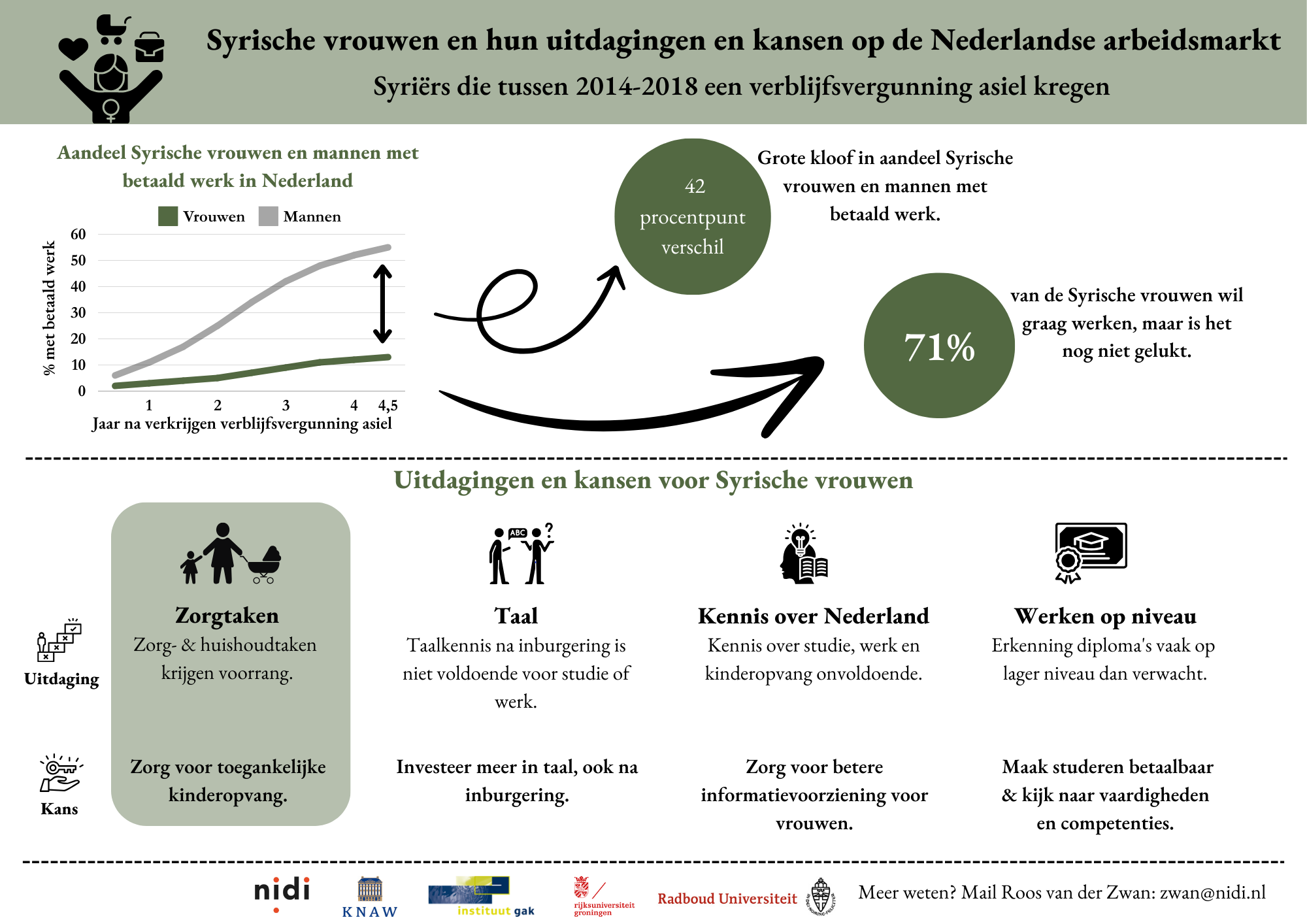This project examines the labour market position of refugees in the Netherlands, particularly the position of female refugees and to what extent life course events affect their position on the labour market. Despite reforms of integration policies, the labour market position of recent refugees, mainly Syrians and Eritreans who fled to the Netherlands from 2014 onwards, remains poor. Partly caused by (long) asylum procedures, a ‘refugee gap’ has arisen, which means that these refugees have a less favorable labour market position compared to other migrants. Research also shows that the labour market position of recent female refugees is worse than that of male refugees. However, it is unknown how developments between men and women differ in the first years after arrival in the Netherlands. The aim of this study is first of all to get a more detailed picture of the development of the labour market position of female refugees and te obstacles they face. Second, to examine the influence of life course characteristics. Recent refugees are often young, starters on the labour market and single. Most likely, many of them will get married and have children in the early years after arrival in the Netherlands. This is likely to affect their participation on the labour market.
This project is funded by the Instituut Gak-KNAW Award (2020).
Infographic – Syrian women and their challenges and opportunities on the Dutch labour market (in Dutch)

